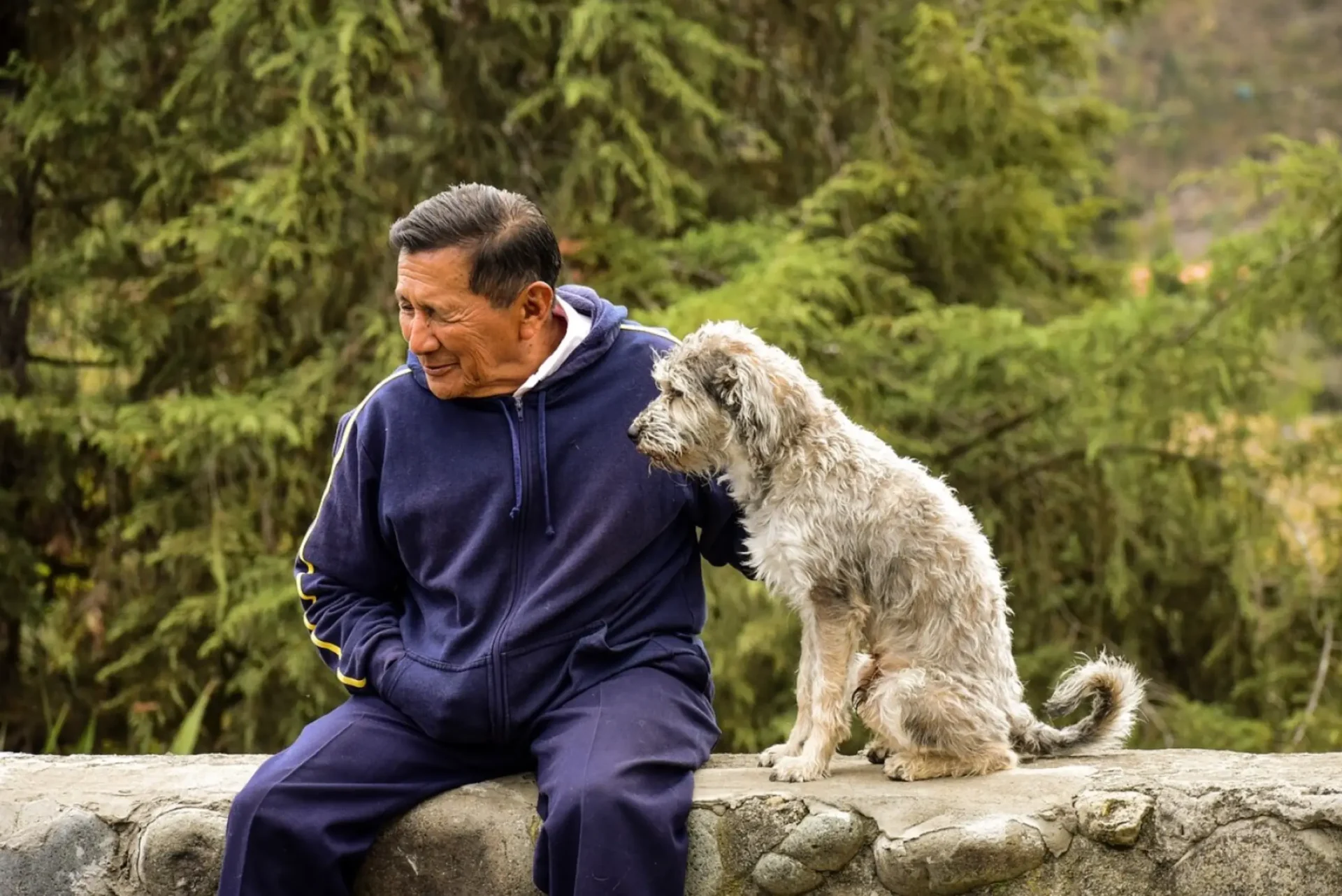In an era marked by fast pace, social isolation and emotional challenges, pets and plants have emerged as indispensable allies in the quest for wellness. These life forms have come to occupy a central place in homes, transforming them into havens of calm and balance.
Pets: four-legged therapists
Pets have become true emotional therapists. Studies have shown that petting an animal can reduce levels of cortisol, the stress hormone, while increasing the production of oxytocin, known as the love hormone. Dogs, cats and even smaller animals, such as rabbits or guinea pigs, provide constant companionship that mitigates loneliness and promotes emotional stability.
A study conducted by Voices and WIN reveals that at least 8 out of 10 citizens in Latin America consider their relationship with animals and plants important, almost as much as their ties with other humans. In addition, 7 out of 10 adults in the region believe that animals should have the same rights as humans.
The emotional benefits of pets are reflected in testimonials such as: “For me, it is a great benefit because she is a fantastic companion, pure affection and never complains about anything” and “My dog helps me get through my anxiety and panic attacks. It knows when I’m having one and helps me cope.”
Some healthcare facilities have begun promoting pet visits to hospitalized patients, highlighting their positive effect on stress reduction. In one example on social media, an image shows a dog resting next to a houseplant while its owner engages in a creative activity. Such depictions illustrate perfectly how pets and plants contribute to the construction of wellness spaces.
Plants: green havens for the soul
If pets are the new children, plants are the new “pets”? Plants, for their part, have found their place not only as decoration, but also as symbols of tranquility and mindfulness. Caring for them promotes a connection with nature and teaches us to value the present. Activities such as watering them, transplanting them or simply observing their growth invite mindfulness, reduce anxiety and encourage patience, an underdeveloped skill in a context of immediacy and vortex.
Caring for plants not only offers beauty and a more livable space, but also satisfies the need for purpose and constancy. From meditation nooks to work desks, plants beautify space and connect people to something greater: nature and its rhythms.
The home as a living ecosystem
The combination of pets and plants in the same home reinforces the idea of a living ecosystem. This coexistence symbolizes a home that prioritizes the integral wellbeing, not only of its human inhabitants, but of all the beings that make it up. This approach reflects a growing desire to surround oneself with elements that nourish both body and mind.
Social isolation is a growing problem: according to a Gallup study, a quarter of people worldwide report feeling lonely. This phenomenon is more pronounced among young women and people in urban contexts. This reflects that human support networks may be weakening due to dynamics such as remote work, the rise of single-person households and digital hyperconnection, which does not always result in meaningful interactions. This leads many people to seek simpler and more authentic bonds in their pets and plants.
In Latin America, mental health issues are especially prevalent. According to Voices and WIN, Argentina and Peru are the countries with the worst stress ratings, with 54% and 59% negative ratings, respectively. Young people between the ages of 18 and 24 stand out as the most affected group, with 72% of negative mentions in Argentina. Women also report higher levels of stress than men. These factors highlight the crucial role of pets and plants as emotional supports in times of uncertainty.
A phenomenon reflected in social networks
Social networks have played a key role in making this trend visible. Posts showing pets as unconditional companions and plants as pillars of well-being have inspired thousands to adopt these elements in their lives. These images project aspirational content that invites people to create a more balanced and emotionally healthy home.
This cultural shift goes beyond aesthetics. It reflects a deep desire to find stability and meaning in an increasingly chaotic world. Pets are perceived as “guardian angels” or wise beings that teach empathy and connection. Plants, on the other hand, connect with ancestral and spiritual practices. People are rediscovering the power of nature to heal and guide personal growth.
This phenomenon is also related to significant demographic changes. The declining birth rate and increase in single-person households have led many people to find in pets and plants an emotional substitute. In the absence of children, these items become “family members,” offering companionship and purpose. In addition, young people, who often delay or avoid parenting due to economic or environmental concerns, find in these relationships a less demanding but meaningful form of emotional connection.
The call to a conscious home
Whether adopting a pet or tending a green corner, we are making small choices that, taken together, build a haven for our mental health. These choices not only transform our homes, but also redefine our relationship with nature and ourselves. However, in this quest for personal well-being, we must not forget the importance of cultivating bonds with others. Human bonds, although sometimes complex, remain essential to our happiness and integral growth.
In a world that demands so much, pets, plants and our human connections remind us that wellness begins at home.
*Machine translation proofread by Janaína da Silva.













